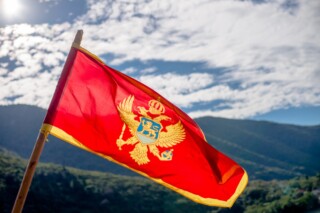
This Article does not give state independence to Montenegro, but merely states that this independence is now widely recognized. There is no doubt in the fact that this marked the first time Montenegrin independence was officially recognized in Europe. Serbia and Romania got a different treatment than Montenegro. Article 34 states that: “Plenipotentiaries now recognize the sovereignty of the Kingdom of Serbia”, and Article 43 recognizes the independence of Romania in the same manner. Serbia and Romania were recognized as independent by all the participants in the Congress, while Montenegro needed to be recognized only by the Ottoman Empire and Great Britain, keeping in mind that its independence was already informally recognized by the rest of Europe’s great powers.
Equal treatment for all new subjects
Article 27 of the Treaty of Berlin obligates Montenegro to show equal treatment to all its new subjects, regardless of religious differences. Great Powers obligate Montenegro to provide equal political, religious and citizen rights to all its citizens, as well as equal treatment in public and state services. Article 28 defines Montenegro’s new borders. Only partly respecting the principle uti possidetis, Montenegro acquires part of the coast from river Željeznica to bay of Kruči, city of Bar with its surroundings, tribe areas of Piva, Drobnjaci, Banjani, Jezera, Šaranci, a part of Vasojevići and a smaller part of Kuči and Uskoci, as well as cities Podgorica, Nikšić, Spuž, Žabljak Crnojevića, Kolašin, Plav and Gusinje with gravitating areas. After these gains, Montenegro’s territory came to be 8.665 km2, twice as much as it used to be before (4.400 km2). Of course, it was only a part of what Montenegro had asked for, and what it considered its right.
Bar with surroundings to belong to Montenegro

Article 29 of the Treaty of Berlin states that city of Bar with its surroundings now belongs to Montenegro, but under certain conditions that enable Austro-Hungary to have supervision of its coast. It also forbids foreign warships to enter Port Bar. Article 30 defines property rights of Muslims – those who decide to remain in Montenegro, and those who decide to live out of its borders. Montenegro’s obligation to consult the Great Powers on these matters is defined in the Article 31.
Article 32 of the Treaty obligates Montenegro to retreat from the areas that have not entered in its territory within 20 days of the signing. Article 33 obligates Montenegro to accept the payment of debt of the Ottoman Empire for the areas that were granted to it by the Treaty.
Dissatisfaction in Cetinje
Decisions of the Congress of Berlin created unfavorable impression and disappointment in Cetinje. Montenegro was granted less territory than it had expected. Basically, it gained a little bit more that what was said to be a bare minimum in Russia’s diplomatic circles, even in the end of 1877, before the war was over. It was far behind what Cetinje expected to be a “just reward”. Duke Gavro Vuković would later write that this failure of “Montenegrin business” in the Congress was due to statesmen’s inexperience, unrealistic expectations of Russia, and ignorance of Austro-Hungary, that has become the main creator of Balkan’s political map. As soon as Austro-Hungary gained such political power, it was clear that Montenegro would not get more than what was the minimum Russia was ready to fight for. That minimum was not enough to please Cetinje, although it was not insignificant.
Decisions of Congress of Berlin seen in negative light
“Before the war, we were full of hope, ready to to fight the Ottoman Empire.. Now, after the war, we can all see that we were manipulated in everything…”, nobleman Rade Turov Plamenac wrote on the Treaty of Berlin and its significance for Montenegro.

The attitude that decisions of the Treaty damaged Montenegro’s rights was stated in the official “Voice of Montenegro”, which states that Montenegro’s gains in the Treaty – “are far behind its achievements, its rightful expectations”. One of the editorials in “Voice of Montenegro” states that the Treaty prolonged the state of crisis, so much so it had become clear that the Eastern matter would be solved with new wars. When it comes to interests of Montenegro, it was stated that the Congress conditioned Montenegro to prepare for the new war. Congress of Berlin brought forth unstable and rotten peace.
“Congress of Berlin only stopped the evil that exists, without removing it from the world. It served the moment and its needs, while leaving the future uncertain, and people of Balkan unhappy. On the backs of small nations, that have fought for their freedom and independence, the great powers found their seats from which they would measure their strength once the big war breaks out, perhaps in the nearest future.”
King Nikola later disappointedly wrote in his memoirs: “Actions of the Congress confirmed the old saying: who has the force, has the power.”
Read the next chapter in the series on Congress of Berlin 1878 of the special editorial on CdM…




